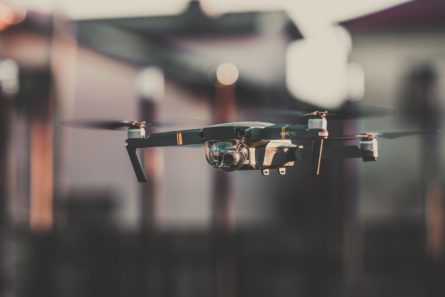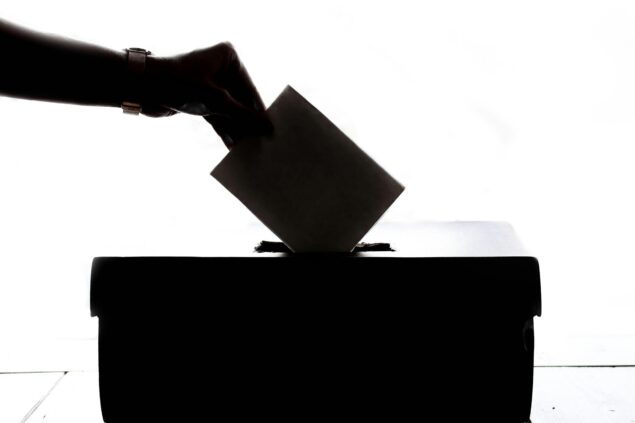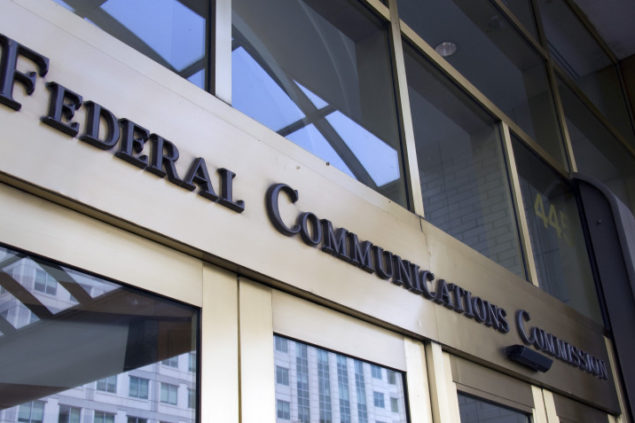The Growing Legal Controversy About Drone Trespass
Brent Skorup

The questions have been raised in the pages of the Wall Street Journal, law reviews, and web forums for years: Can I prevent a drone from flying above my home? Is a drone trespassing?
These are difficult questions that federal lawmakers have avoided for years, even as the Federal Aviation Administration begins allowing drone operators to do routine delivery operations this year. Drone trespass cases will only proliferate nationwide. There’s a way forward—drone easements above public roads—that protects private property, protects federal and state agencies from takings lawsuits, and promotes commercial drone services. But time is running out as drone litigation commences. Lawmakers haven’t clarified matters, so courts are stepping in, though court decisions can be narrow and haphazard.
Homeowners, utilities, school officials, and park rangers don’t want the interference, loss of privacy, or visual pollution associated with drone flights. Too many people have shot drones that bother them. Trespass is an obvious and peaceful remedy to prevent intrusions into the airspace immediately above your property.
Curious Editing of FAA Policy
Strangely, industry talking points are creeping into federal regulators’ documents. As a result, FAA guidance to states and cities—which used to encourage FAA-state collaboration—is confusing and contradictory. For instance, the 2015 guidance anticipates that states and cities will regulate drone operations, but encourages consultation with the FAA before acting. In July 2018, however, someone at the FAA modified the agency’s public guidance by adding the assertion—providing no legal support—that state and local governments “are not permitted to regulate” drone flight paths and altitudes. Confusingly, that webpage still points state and local officials to the initial, more permissive guidance.
The initial guidance also noted that state and local drone laws can derive from several legal categories:
Laws traditionally related to state and local police power—including land use, zoning, privacy, trespass, and law enforcement operations—generally are not subject to federal regulation.
In the 2018 update, someone at the agency stripped out a single word on the webpage: “trespass.”
It’s an odd omission considering that the FAA has never claimed to preempt aerial trespass laws. Private landowners and states can bring trespass lawsuits against drone operators for flying above homes, private woodlands, farms, and state parks.
The FAA’s unclear and conflicting guidance leads many drone operators to incorrectly believe that if they comply with FAA rules, that’s all the permission they need. One man, for instance, was convicted for misdemeanor drone trespass in Louisiana last year. The man had hoped that the FAA would assist his defense and preempt the state drone trespass law, but that help never came. He somberly reflected to DroneDJ, a drone news site, on the conflicting federal and state guidance about drone trespass: “The laws are so vague on drones.”
Hobbyists and industry suffer because federal and state governments don’t formalize their roles. It’s harder still for drone entrepreneurs to create business plans—–and for investors to trust those plans—–when every homeowner flown over represents a threat of trespass and injunction.
Homeowners’ Privacy Expectations
There’s an interesting legal controversy in Michigan involving government snooping on private landowners with drones. Town officials, to gather evidence of zoning infractions, contracted with a drone operator to fly above a private residence to take photographs of the property. The homeowners sued to suppress the drone photographs, which were acquired without a warrant. The appellate court agreed and suppressed the evidence, based on the property invasion and privacy expectations:
[F]lying at legal altitudes [that is, less than 400 feet] over another person’s property without permission or a warrant would reasonably be expected to constitute a trespass.
The decision, Long Lake Township v. Maxon, has alarmed some drone advocates, as it’s the first time an appellate court has acknowledged landowners’ air rights in a drone case. Those advocates are urging the town to appeal to the Michigan Supreme Court.
The Fight to Codify Federal Control of Backyard Airspace
The fight over drone trespass is at the FAA as well. Last fall, drone advocates requested that the FAA preempt all state laws that prohibit low-altitude drones above sensitive locations like jails, stadiums, and parks. The FAA, to its credit, has resisted preempting state laws and trespass laws to date. As law professor Troy Rule wrote in a law review article, the FAA’s gutting of state property and trespass laws would “arguably orchestrate one of the largest uncompensated transfers of property interests in United States history.”
As the GAO reported to Congress last fall, the FAA faces legal obstacles and can’t simply unilaterally authorize drone delivery highways above homes. Incidentally, soon after that report was released, a federal court in Texas dismissed with prejudice the arguments from drone operators that states are preempted from regulating surface airspace.
Air rights do not extend thousands of feet above homes, but as I point out in a forthcoming Akron Law Review article, courts and legal treatises have treated surface airspace as real property for 150 years. For instance, as the highest court in New York held in 1906 when a phone company tried to string lines across a homeowner’s land:
The law regards the empty space as if it were a solid, inseparable from the soil, and protects it from hostile occupation accordingly.
The homeowner, the court said, can eject the phone company from the occupation of his airspace.
Likewise, the Supreme Court in 1946 recognized that property is three-dimensional when military planes flew too close to the ground when taking off and landing. The Court in Causby v. U.S. held that homeowners own the “immediate reaches” above their land and that government intrusions into that airspace (like military flights) are takings.
For a century, real estate developers in cities bought and sold airspace. In fact, the IRS expressly defines surface airspace as land and real property—–you’re taxed if you sell it.
So long as aviation regulators refuse to formalize federal-state sharing of authority over drone operations, the industry will suffer. The FAA has tried to find a way to share authority with state and local authorities. In 2017, the agency recruited 10 state, local, and tribal governments to experiment with ways to regulate drone operations. The agency also set up a subcommittee of state and local officials and drone advocates to recommend ways trespass and other state laws would apply to drone operations.
However, the FAA has not codified any lessons learned from the drone regulatory experiments. And the subcommittee work completely broke down in acrimony and dysfunction over the drone trespass issue, as the Washington Post reported in late 2017.
The Uniform Law Commission tried to bring clarity to drone trespass cases and several state bills this year proposed the creation of drone easements above public roads. Those efforts have been derailed by advocates who are hoping Congress will one day codify federal control of all outdoor airspace.
Despite these efforts, the drone trespass issue will only grow as drone operations expand and the law develops incrementally in the courts. State legislatures establishing drone easements above public roads would instantly open up millions of miles of drone highways nationwide. Over 20 states allow state or local authorities to lease airspace above roads, and legislation was introduced in several states this year to use this authority for drone easements. Federal and state governments could share the leasing revenue and help fund the infrastructure needed for drone deliveries. However, most federal and state aviation officials prefer silence about drone trespass to angering industry and landowners. For better or worse, judges aren’t so shy.
Related Reading:

Topic
Sponsor
Federalist Society’s Environmental Law & Property Rights Practice Group
The Federalist Society and Regulatory Transparency Project take no position on particular legal or public policy matters. All expressions of opinion are those of the author(s). To join the debate, please email us at [email protected].



